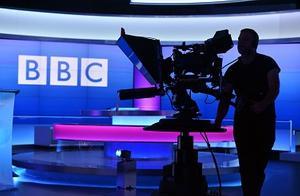BBC needs a stable funding model free from political interference, says NUJ
The National Audit Office said the corporation needed a strategic plan as it faces an uncertain financial future.

© BBC
The BBC needs a stable funding model and an end to the relentless cuts if it is to fulfil its remit as a public service broadcaster, the NUJ has said in response to a National Audit Office report.
Paul Siegert, the NUJ's national broadcasting organiser, said:
"The findings by the National Audit Office come as no surprise. The NUJ has been warning for sometime that the BBC's financial future is uncertain. There have been too many dodgy, behind closed door deals done in the past by successive BBC director generals with the government.
"Now is the time to have a grown-up discussion to ensure that the BBC is properly funded and funded in a way that comes without any political interference.
"It is unacceptable that the BBC should have been forced to take on the funding of free licence fees for the over-75s. The cost of that is now £500m annually. They have only been able to meet that obligation by cutting costs when that money should have been invested in quality programming and journalism. On top of that the threat of the government decriminalising licence fee evasion remains a threat.
"The BBC has played a vital role during the current pandemic, but, as the BBC begins talks with the government over the next licence fee settlement, it needs to ensure a financially secure long term deal that will guarantee its future."
The National Audit Office report concluded that the corporation faces an uncertain financial future because of falling audiences as viewing habits have shifted dramatically, particularly among younger audiences, the cost of paying for the licences of some over-75s, unexpected costs caused by Covid-19 and ring-fenced costs such as for S4C, the Welsh language channel. The BBC also faces competition from competitors such as Netflix which have greater spending power for high-end drama.
By 2019-20, the BBC had made annual savings of £618 million, broadly on track to meet its schedule. In 2020, it increased its annual savings target to £1 billion by 2021-22. For three of the past five years, the BBC's costs have outstripped its income, with it making a loss of £119 million in 2019-20.
The report said the renewal of the EastEnders set was delivered 31 months late and more than £25 million over budget; and that the corporation has since strengthened its governance of projects.
Key financial facts
- £3.52bn BBC income from licence fee 2019-20
- £208m financial returns from commercial activities 2019-20
- £310m decline in licence fee income between 2017-18 and 2019-20
- £119m amount by which BBC spending as a whole exceeded income in 2019-20
- £618m annual savings delivered by the end of 2019-20
- £125m additional savings required to meet the financial impact of COVID-19
The National Audit Office said the BBC needed to put in place a clear, strategic financial plan Gareth Davies, the head of the NAO, said:
"The BBC faces significant financial challenges as it embarks upon licence fee negotiations and its mid-term charter review. It has made significant cost savings and has identified the need for more with licence fee income under pressure. As decisions about the licence fee are made, the BBC needs to develop a clear financial plan for the future setting out where it will invest and how it will continue to make savings. Without such a plan, it will be difficult for the BBC to effectively implement its new strategic priorities."
